Nature reports
Category: Birds
Page 2 of 9 - 83 Results
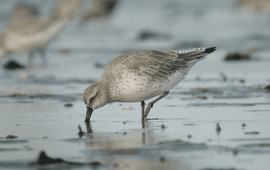
In any group of red knots, respective individuals exhibit a remarkable array of distinct character types. Birds with an exploratory character are motivated to investigate their environment and readily explore unfamiliar areas...
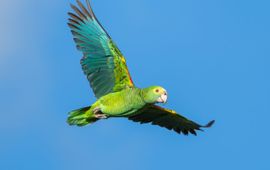
Fundacion Parke Nacional Aruba (FPNA) today announced the reintroduction of the locally extinct yellow-shouldered amazon, also known locally as ‘Lora’, back into Aruba’s nature...

On the mudflats along the Chinese coasts where non-desctructive forms of aquaculture are practiced, shorebirds like knots and bar-tailed godwits are doing relatively well. “The culturing of shellfish is by no means a way of nature..
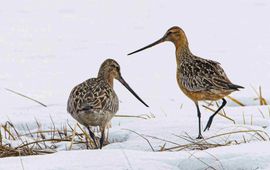
Changing climate may slowly erode the difference between two subspecies of bar-tailed godwits. That warning is voiced by bird researchers from the Royal Netherlands Institute for Sea Research (NIOZ) and the University of Amsterdam..

Birds are affected by the mass use of fireworks on New Year's Eve up to a distance of ten kilometres away. This is concluded by researchers of the University of Amsterdam, based on data from weather radar and bird counts. They..
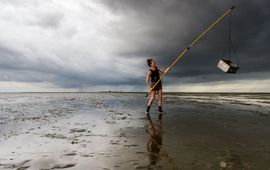
Contrary to the population trends for many shorebirds, sanderlings have been doing relatively well in the Wadden Sea for the past years. The key to that success lies in the timing of these little birds' main food: shrimp on the..
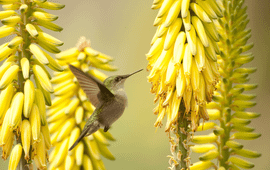
A new DCNA project 'Monitoring for Bird Biodiversity Conservation in the Dutch Caribbean' has officially been launched. Through combining enhanced training, field surveys and the use of a standardized monitoring programme, local..
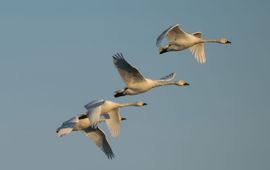
Bewick’s swans fly less far during their autumn migration when the weather is warm. Climate change has therefore led to a shift in their common wintering areas. Now, for the first time, bird researchers have been able to pinpoint..
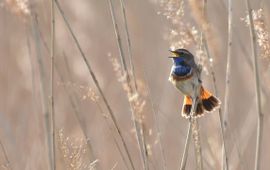
Machine learning, often called 'AI', makes it possible to uncover the mysterious world of animal communication, analysing their sounds that convey so much information. A new project called 'Bioacoustic AI' is going to make this..
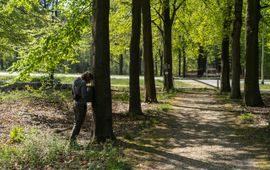
How important is cognitive flexibility – adjusting learned behaviour to fit new circumstances – for great tits' ability to adapt to a changing environment? Krista van den Heuvel did her PhD research at NIOO on this question. A..
